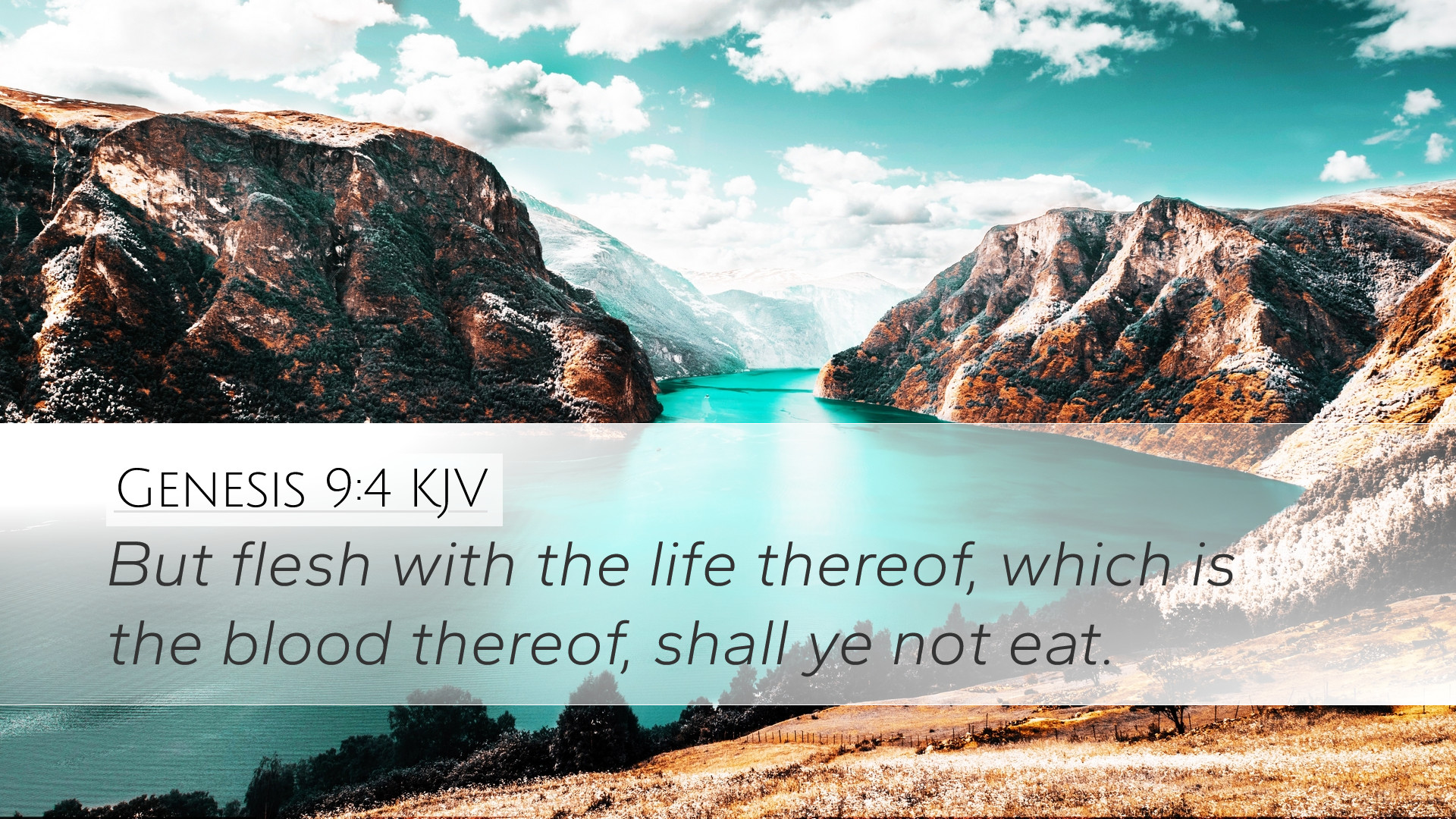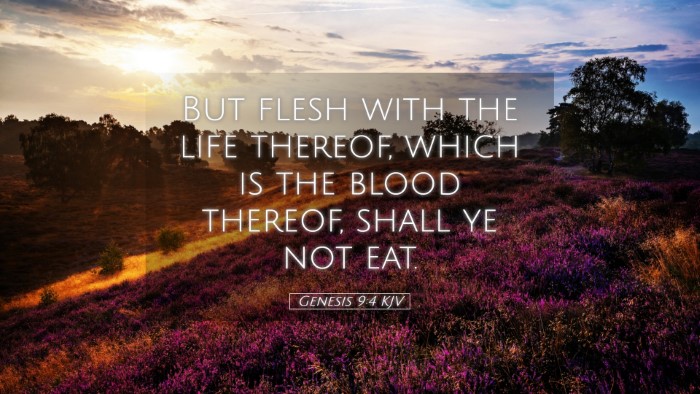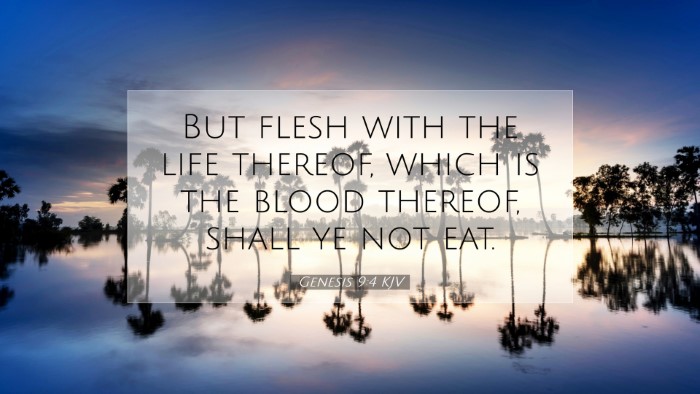Commentary on Genesis 9:4
Genesis 9:4 states: "But you must not eat meat that has its lifeblood still in it." This verse, part of the covenant God establishes with Noah after the Flood, addresses the sanctity of life and introduces regulations regarding the consumption of blood, which is central to understanding both Jewish dietary laws and the overarching theme of humanity's responsibility toward God's creation.
Contextual Analysis
This verse appears in the context of God's gracious covenant with humanity following the destruction of the world by the Flood. After Noah and his family are saved, God reestablishes His intent for humanity, emphasizing the continuation of life and the importance of moral order.
- Covenantal Basis: God's covenant signifies restoration and a new beginning for creation.
- Divine Authority: The prohibition against consuming blood underscores God's authority over life and death.
Theological Implications
The prohibition in Genesis 9:4 carries profound theological implications. It reflects God's view of blood as sacred, representing life itself.
- Sanctity of Life: The term "lifeblood" indicates that life is sacred and should be treated with the utmost respect.
- Symbolism of Blood: Throughout Scripture, blood symbolizes both life and the atonement, culminating in the sacrificial system of the Old Testament and the blood of Christ in the New Testament.
Interpretations from Commentaries
Matthew Henry
Matthew Henry comments on the spiritual significance of this command. He emphasizes that the prohibition against eating blood signifies the seriousness with which God regards life. Henry posits that this law was meant to educate humanity about the consequences of sin, particularly the violent shedding of blood, and to remind them of the proper reverence due to God’s creations.
Albert Barnes
Albert Barnes provides a thorough explanation regarding the cultural context of this command. He notes that in the ancient world, consuming blood was often associated with pagan rituals and idolatry. Barnes underlines that this prohibition serves as a means to distinguish God's people from surrounding nations and practices.
Furthermore, he relates this divine command to the moral foundation of society, which relies upon the acknowledgment of life's sanctity. He points out that the observance of this directive was foundational for the health of the community.
Adam Clarke
Adam Clarke elaborates on the implications of this law, connecting it to the broader theme of prohibition against shedding blood unjustly. Clarke insightfully asserts that the directive foreshadows the later Mosaic laws, which provide a more comprehensive framework for understanding holiness and the relationship between God and Israel. Clarke emphasizes the ethical dimensions of this command, reminding readers that the reverence for blood reflects an intrinsic respect for life itself and maintains a relational understanding between God and humanity.
Practical Applications for Today
The insights gleaned from Genesis 9:4 can guide believers in their daily lives in several meaningful ways:
- Respect for Life: Understanding the sacredness of life informs ethical questions in modern society, from issues of bioethics to social justice.
- Spiritual Reflection: The command to abstain from blood encourages personal reflection on one’s relationship with God and the gravity of moral decisions.
- Community Responsibility: As stewards of God’s creation, individuals are called to protect and preserve life in all its forms.
Conclusion
Genesis 9:4 is not merely an ancient prohibition but is rich with theological, ethical, and communal significance. The commentaries from Matthew Henry, Albert Barnes, and Adam Clarke illuminate the text's enduring impact on our understanding of life and the sacredness of blood, encouraging both individual reflection and communal responsibility. For pastors, students, theologians, and scholars, this verse offers profound insights into the nature of God's covenantal relationship with humanity and the moral imperatives that arise from it.


